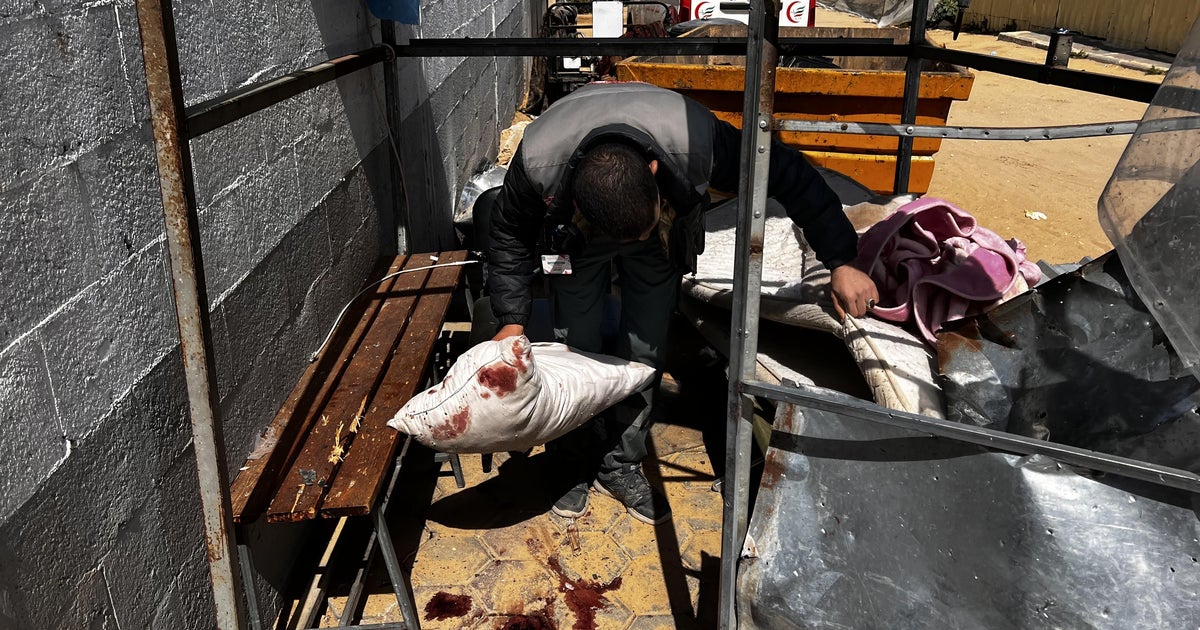Chaos in Gaza: Hospital Attack Deepens Health Crisis Amid Escalating Conflict
An Israeli airstrike hit a major Gaza hospital on Wednesday, marking the second attack on medical facilities in 72 hours and pushing the territory’s healthcare system toward collapse. The strike on Al-Shifa Hospital—which served 1.4 million Palestinians—killed at least 15 staff and patients while damaging critical neonatal and surgical units. This escalation comes as Gaza faces severe shortages of medicines, fuel, and functional hospitals, with humanitarian groups warning of catastrophic consequences for civilians.
Healthcare Infrastructure Pushed to the Brink
The latest attack reduces Gaza’s operational hospitals to just 11 out of 36 pre-conflict facilities, according to World Health Organization (WHO) data. Over 60% of primary healthcare centers have shut down due to damage or supply shortages. The UN Office for the Coordination of Humanitarian Affairs (OCHA) reports:
- 90% of Gaza’s population lacks access to clean water
- 70% of hospitals operate without regular electricity
- Medical teams perform surgeries without anesthesia in some cases
“We’re seeing medieval conditions in a 21st-century conflict zone,” said Dr. Firas Al-Khaldi, a WHO emergency coordinator. “When you bomb hospitals, you’re not just destroying buildings—you’re eliminating generations of healthcare capacity.”
Conflicting Narratives Emerge
Israeli military officials stated the hospital housed Hamas command centers, alleging militants used patients as human shields—a claim Hamas denies. Video analysis by independent conflict monitors remains inconclusive regarding military activity at the site.
Meanwhile, Palestinian Health Minister Mai Al-Kaila described the strike as “a deliberate assault on Gaza’s lifeline.” During a press conference in Ramallah, she presented documentation showing 137 healthcare workers killed since hostilities began.
The Human Toll of Collapsing Medical Systems
At Al-Shifa’s overwhelmed emergency ward, Dr. Yusef Mahmoud described treating burn victims on the floor: “We’ve run out of beds, antibiotics, and blood bags. Children are dying from infections that would normally require simple antibiotics.” Médecins Sans Frontières reports a 300% increase in preventable deaths from conditions like diabetes and kidney failure.
Key Statistics Highlight the Crisis
Recent data paints a dire picture:
- 1 hospital bed per 1,500 people (compared to 1 per 200 in Israel)
- 12-hour waits for emergency care at remaining facilities
- 45,000 pregnant women without access to prenatal care
“This isn’t just war—it’s a public health time bomb,” warned Dr. Irene Martel of the International Medical Corps. “Even if fighting stopped today, the secondary health crisis from malnutrition and disease could claim more lives than bombs.”
International Response and Legal Implications
The UN Security Council will convene an emergency session, while the International Criminal Court (ICC) confirmed it’s gathering evidence on hospital attacks. Legal experts note that targeting medical facilities violates the Geneva Conventions unless proven to host military operations.
Humanitarian corridors remain sporadic, with only 14% of needed medical supplies entering Gaza last week. US Secretary of State Antony Blinken stated negotiations continue for “protected medical zones,” but implementation faces logistical and security challenges.
Voices from the Ground
Nurse Amal Hassan, who survived the Al-Shifa blast, described chaotic scenes: “The ceiling collapsed in the pediatric ward. We carried newborns to the parking lot, using car headlights to check their pulses.” Her account aligns with WHO reports of medical staff using smartphone flashlights for nighttime procedures.
What Comes Next for Gaza’s Healthcare?
With winter approaching, health officials fear disease outbreaks in overcrowded shelters housing 1.9 million displaced Gazans. The WHO estimates $75 million needed immediately to restore basic services—a figure likely to rise as damage assessments continue.
As diplomatic efforts stall, medical NGOs urge three immediate actions:
- Guaranteed protection for remaining healthcare facilities
- Unrestricted entry of medical supplies and fuel
- Evacuation pathways for critically ill patients
The international community faces mounting pressure to intervene before Gaza’s health system reaches total collapse. For now, doctors like Mahmoud continue working 36-hour shifts: “We keep going because when we stop, people die. But how long can we hold on?”
To support emergency medical efforts in Gaza, verify reputable aid organizations through the UN Humanitarian Coordination portal.
See more CNN Headline


